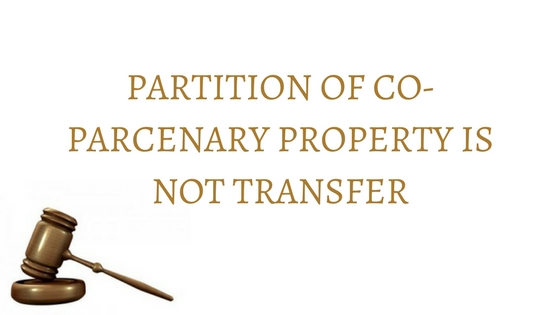Aapka Consultant Judgment Series- In this series, we are providing case analysis of Landmark Judgments of Hon’ble Supreme Court of India.
V.N. Sarin vs. Ajit Kumar Poplai
AIR1966SC432; [1966]1SCR349
Hon’ble Judges/Coram: P.B. Gajendragadkar, C.J., J.C. Shah, K.N. Wanchoo, M. Hidayatullah and S.M. Sikri, JJ.
Date of Decision: 09.08.1965
FACTS:-
The appellant became tenant of premises owned by a Hindu undivided family of which respondent No. 2 was the head. On partition of the family property, the said premises fell to the share of respondent No. 1. An application was thereafter made to the Rent Controller by respondent No. 1 under s. 14(1)(e) of the Delhi Rent Control Act, 1958 (hereinafter called ‘the Act’), seeking on the ground of personal need, the eviction of the appellant from the premises. The appellant resisted the application, inter alia, on the ground that as respondent No. 1 had acquired premises by ’transfer’ within the meaning of s. 14(6) of the Act he was precluded from taking advantage of s. 14 (1 ) (e) of the Act.
After passing through various stages the matter went to the High Court which held that a share acquired on partition of a Hindu undivided family was not an ’acquisition by transfer’ contemplated by s. 14(6) of the Act. The appellant came to the Supreme Court by Special Leave. It was contended on behalf of the appellant that under s. 53 of the Transfer of Property Act, and s. 17(1)(b) of the Indian Registration Act it had been held that partition of a Hindu undivided family was transfer within the meaning of those sections and the same construction should be placed on the word ’transfer’ in s. 14(6) of the Act. The Section 14(6) of the Act provides that where a landlord has acquired any premises by transfer, no application for the recovery of possession of such premises shall lie under sub-section (1) on the ground specified in clause (e) of the proviso thereto, unless a period of five years has elapsed from the date of the acquisition.
ISSUE:-
- Whether the partition of co-parcenary property among the coparceners under Hindu Law is a transfer within the meaning of S. 53 of the Transfer of Property Act, 1882, and therefore, can it said to be “an acquisition by transfer” within the meaning of s. 14(6) of the Act?
JUDGMENT:-
The object intended to be achieved by Section 14(6) of the Act seems plain that is to prevent transfers by landlords as a device to enable the purchasers to evict the tenants from the premises let out to them. Apparently, the legislature thought that the possible mischief which may be caused to the tenants by transfers made by landlords to circumvent and absolute provision should be made as prescribed by s. 14 (6).
What Section 14(6) provides is that the purchaser should acquire the premises by transfer and that necessarily assumes that the title to the property which the purchaser acquires by transfer did not vest in him prior to such transfer. Having regard to the object intended to be achieved by this provision, the Court is not inclined to hold that a person who acquired property by partition can fall within the scope of its provision even though the property which he acquired by partition did in a sense belong to him before such transfer. Where a property belongs to an undivided Hindu family and on partition it falls to the share of one of the coparceners of the family, there is no doubt a change of the landlord of the said premises, but the said change is not of the same character as the change which is effected by transfer of premises to which Section 14(6) refers. In regard to cases falling under Section 14(6), a person who had no title to the premises and in that sense, was a stranger, becomes a landlord by virtue of the transfer. In regard to a partition, the position in entirely different. When the appellant was inducted into the premises, the premises belonged to the undivided Hindu family consisting of respondent No. 1, his father and his brother. After partition, instead of the undivided Hindu family, respondent No. 1 alone had become landlord of the premises. The Court is satisfied that it would be unreasonable to hold that allotment of one parcel of property belonging to an undivided Hindu family to an individual coparcener as a result of partition is an acquisition of the said property by transfer by the said coparcener within the meaning of s. 14 (6).
HELD:-
The Section 14 (6) did not create a bar against the institution of the application by respondent No. 1 for evicting the appellant as partition of co-parcenary property among the coparceners under Hindu Law is not a transfer within the meaning of S. 53 of the Transfer of Property Act, 1882
To Get Legal Opinion from Advocates/ Legal Experts, Please click here
To Get Legal Opinion from Retired Hon’ble Judges, Please click here












